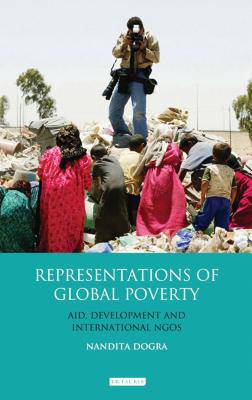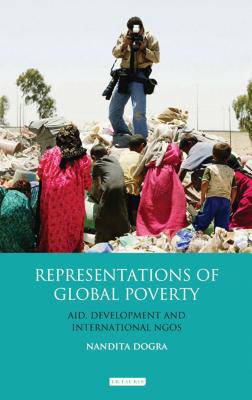
Je cadeautjes zeker op tijd in huis hebben voor de feestdagen? Kom langs in onze winkels en vind het perfecte geschenk!
- Afhalen na 1 uur in een winkel met voorraad
- Gratis thuislevering in België vanaf € 30
- Ruim aanbod met 7 miljoen producten
Je cadeautjes zeker op tijd in huis hebben voor de feestdagen? Kom langs in onze winkels en vind het perfecte geschenk!
- Afhalen na 1 uur in een winkel met voorraad
- Gratis thuislevering in België vanaf € 30
- Ruim aanbod met 7 miljoen producten
Zoeken
€ 62,95
+ 125 punten
Omschrijving
Through the efforts of increasingly media-aware NGOs, people in the west are bombarded with images of poverty and inequality in the developing world. Representations of Poverty is the first comprehensive study of the communications and imagery used by international NGOs to represent the developing world. In this meticulously researched and original book, Nandita Dogra examines the full cycle of representation - integrating analyses of the public messages of international development NGOs in the UK with the views of their staff and audiences. Exploring the Europeanised discourses inherent in appeals to this notion of a 'common humanity', she argues for a greater acknowledgment of NGOs as significant mediating institutions which can expand understandings of global inequalities and their historical causation. The book is a timely addition to the growing fields of development and media studies and will be a key resource for academics, policymakers and practitioners alike who have an interest in global poverty, aid, NGOs, and the politics of representation.
Specificaties
Betrokkenen
- Auteur(s):
- Uitgeverij:
Inhoud
- Aantal bladzijden:
- 256
- Taal:
- Engels
- Reeks:
Eigenschappen
- Productcode (EAN):
- 9781780767734
- Verschijningsdatum:
- 27/02/2014
- Uitvoering:
- Paperback
- Formaat:
- Trade paperback (VS)
- Afmetingen:
- 137 mm x 213 mm
- Gewicht:
- 272 g

Alleen bij Standaard Boekhandel
+ 125 punten op je klantenkaart van Standaard Boekhandel
Beoordelingen
We publiceren alleen reviews die voldoen aan de voorwaarden voor reviews. Bekijk onze voorwaarden voor reviews.









